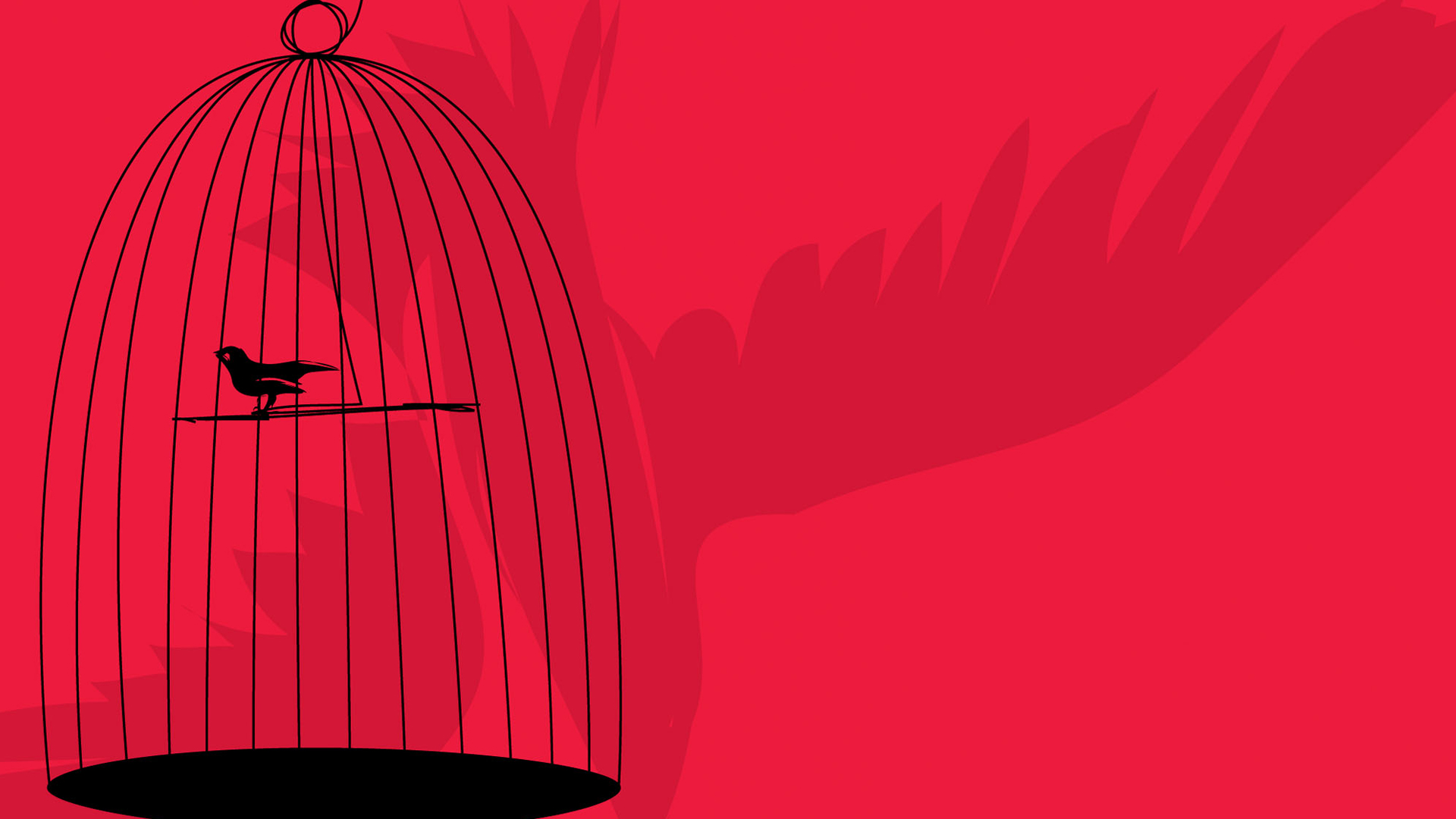
Features
Essays, stories, prose poems, surveys and critiques


Coercion—within an intimate relationship—is not much talked about, but it exists.
We are grateful to one of our readers for helping to bring it in out of the shadows.
If you are going through anything like this, please tell someone. Ask for help.
______________________________________________________________________________
When I met him, I was twenty-three. I had no idea what being in a serious relationship meant.
Looking back, there were things at the start that should have been warning signs. Subtle suggestions that a skirt didn’t suit me—maybe I should find another one? That my hair would be prettier long, so why didn’t I forget the hairdresser for a while? He didn’t feel comfortable eating out, so why was I insisting?
Relationships were about compromise, I knew that much. So I compromised.
He was always a joker, so when he started pointing out my ‘big nose’ and ‘big bum’ it was all in jest. If I took it the wrong way, I was just being sensitive. Answering questions with ‘you nose, big nose’ was harmless banter, no big deal. He loved me—he said so—surely he didn’t need to compliment me?
One evening I was late to meet him. The Central line on the tube had frozen and I was stuck between Oxford Circus and Bond Street for thirty minutes. When I finally emerged, I was met with three text messages: ‘I’m here, where are you?’ ‘Are you taking the p***? You’re late.’ And finally, ‘I can’t be bothered with you.’ That last text had been sent two minutes earlier, so I rang back and it went to voicemail. And again. And again. Eventually, he answered in silence. I apologised, begged for forgiveness, then went halfway across the city to find him. This kind of behaviour on his part was a blip: he had been looking forward to seeing me and I had disappointed him, and so he’d reacted. It was my fault. It was because he cared about me.
After two years we moved in together. He didn’t want to rent long term, so we spoke about buying somewhere together. One Sunday afternoon he asked to discuss money. What followed was a forensic interrogation of my financial situation. Bank statements were gone through, payments challenged and in no uncertain terms I was made to understand that I was bad with money. As he was kind, he was willing to help me fix this. Month after month, we went through the ritual of checking my accounts, credit cards and plans. It was painful and, worse than raised voices, there was constant disappointment and disapproval. I was to pay certain amounts off in debt every month as well as contributing fifty per cent of our living costs and household bills. This left me with around £50 a week in ‘living allowance’. I couldn’t plan anything socially; and anything he wanted to do, I was expected to share the cost. Financially, I was crippled, but—it was all for my own good, I would soon be debt free, life would get better.
Every time I couldn’t afford to do something, I was met with a deep sigh, a roll of the eyes and, ‘I suppose I will just have to cover for you, again’—another sign of his generosity and how ‘lucky I was to have him’ (a phrase he used often).
In the background, he was writing down every penny where I had failed to pay my fair share. This soon snowballed. Suddenly, I was not only paying towards my credit card every month, I was also paying a hefty amount to settle my debt with him. I was never told what made up that figure, just the total. If I did ask, the response was always, ‘Don’t you trust me? I do everything for you and this is how you repay me?’
I am not sure if you have ever been told by the person who is supposed to love you and protect you that they actually resent you. I cannot describe the hurt and guilt that goes through you in that moment. At first, you are horrified, angry; but this is quickly followed by a feeling that you are the party who has wronged the other. He would tell me repeatedly that I was a burden, ‘in the losses sheet’, ‘a liability’. I would never find anyone who would be as kind as him, as generous and loyal. No one else would take me on.
Over the next few years, he invested in property. A lot of the time, work needed to be done, legal papers looked at and estate agent appointments kept. At work, I would receive a long list of ‘Actions’ for when I got home; at the same time, I was expected to clean, cook and do the laundry. He was contributing more than me financially, so it was only fair that I made up for it in other ways.
On a typical day, I cycled the eight miles to the office (to save the cost of public transport), worked a full day and cycled home. Then I cooked dinner, cleaned the kitchen, ironed his shirt for the next day and headed over to the flat he had just bought to paint window sills or strip out carpets.
If I was ever sitting on the sofa or hadn’t yet done something, I was called ‘lazy’, ‘ungrateful’, ‘selfish’. One weekend, he arranged to go away. I was looking forward to a couple of days to myself; then an email came in from him detailing ten viewings he had arranged for me to do across the city. On Christmas Eve one year—while he and a friend went out to buy a Christmas tree (not for our flat, I was never allowed one)—my dad and I spent the day ripping out a kitchen and taking it down four floors to be picked up by the council.
I had little time for friends or family. If we did visit my mum I was on a strict timetable: we would arrive on a Saturday evening, and on Sunday morning I had to be in the car by nine o’clock, or he would leave without me. I was given permission to go out with friends as long as it was no more than once every couple of weeks. When it got to seven o’clock, the texts would start to arrive: ‘You are so selfish. There is nothing for me to eat in the house.’ ‘I give you so much and all you do is take—you are useless.’ ‘One day I will find someone who deserves me, someone intelligent and actually pretty.’ I couldn’t relax and would head home by eight, not knowing what mood would greet me when I walked through the door. Often, I was met with cold silence. In the end, I stopped going out, stopped arranging anything.
When my mum was diagnosed with cancer, I did everything I could to support her. I was at every appointment and tried to hold everyone else up. He didn’t come with me to see her, not once.
I stayed with her for a week after her surgery, and when I got back to London all I wanted to do was sleep. I was exhausted mentally and physically. But he had arranged a dinner with his parents. I begged to be allowed to go home to bed but was, again, told I was being selfish, I was crying for myself not my mum, and I was embarrassing him. I sat through the whole meal with a fake smile plastered to my face, while inside I was a complete mess.
Her final appointment was on a Friday morning and I was due to drive up the night before, on the Thursday. That morning, he told me that the car was no longer available to me and I would have to figure something else out—he had arranged to play golf that weekend. I went to work and was distraught. I didn’t have the funds to get a last-minute train ticket and there was no way I could miss the appointment. I told a colleague, who instantly insured me on their car and arranged for me to take it that evening. No one had been that kind to me for a long time; I had forgotten what it was like.
We got the all-clear on my mum’s illness after two years. When I called to tell him the news, all he said was, ‘Good, now that box is ticked you can get on with what’s actually important.’
We are taught that abuse is physical. You have to have bruises, someone has to hit you—and he didn’t. Occasionally, he would grab and hold my wrists while laughing. Once, in the car, I took my eyes off the road to fiddle with the radio and I swerved slightly; he punched me in the side of the head because he had been scared and I had almost killed us. But I wasn’t a ‘battered wife’. It only happened once.
I know that, reading this, you may be shouting at the page. Before I met him I would have been, too. I was strong and independent. I was fun. I was close to my family and had great friends. The only thing I can liken it to is a rock on the coastline: waves continually rush over it but anyone who looks at it every day won’t see a change, and one day all that remains are pebbles on the shore line. After a while, you start to believe everything that they say to you. I was lazy. I was a burden. He had every right to treat me the way that he did, because I was lucky to have him and wouldn’t find anyone else.
One lunchtime, at work, I was—by happenstance—invited to a session being delivered by the Corporate Alliance, a charity set up in the UK to increase awareness of domestic abuse. The session began with the presenter going around the table and saying one thing to each person. It started with, ‘I’m not sure about the skirt you’re wearing, you would look so much prettier in another one’, moving on to ‘I don’t understand why you need your family, you have me’, and finally, ‘If you tell anyone, I will kill you’.
I sat in silence. Of the ten statements that she went through, eight of them had been said to me in the last two years. I left the meeting shaking. I had thought until that point that my relationship was normal.
I took eighteen months after that to muster the courage to leave.
I spoke to no one about my plans; and then, one Saturday morning almost two years ago, I told him that I was unhappy. I went to stay with my mum and didn’t go back. It was the hardest thing that I have ever done.
I would like to tell you that this is the end of my story. What people don’t tell you is that the time it takes to heal emotional scars is tenfold that to physical ones. I still dream that I am there and wake up in a cold sweat. Somewhere, I lost myself and am having to learn over again who I am.
_________________________________________________________________________________________
© Norton Rose Fulbright US LLP 2025